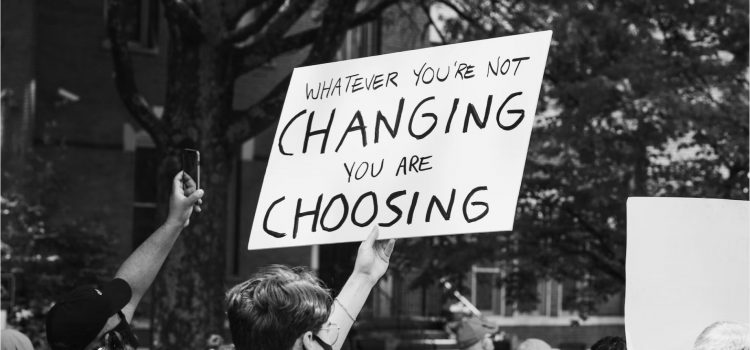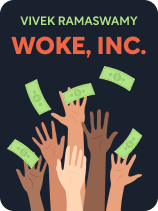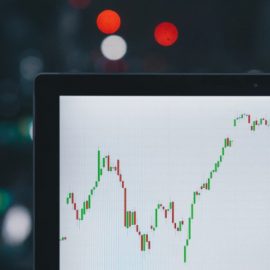

This article is an excerpt from the Shortform book guide to "Woke, Inc." by Vivek Ramaswamy. Shortform has the world's best summaries and analyses of books you should be reading.
Like this article? Sign up for a free trial here.
Does boycotting work? What makes boycotting an ineffective form of activism? How can it make things worse?
According to Woke, Inc. author Vivek Ramaswamy, corporations create false alliances with social causes so that they can influence legislation, manipulate consumers, and silence dissent. While consumers may be tempted to boycott such companies, Ramaswamy argues that boycotting doesn’t work.
Keep reading to learn why boycotting isn’t an effective form of activism, according to Ramaswamy.
Does Boycotting Work—Not Really
Activists looking to bring about change will sometimes encourage consumers to boycott a company they deem isn’t woke enough. But, does boycotting work? Boycotts might seem productive and empowering to the woke consumer in the short term, but Vivek Ramaswamy claims that politically-motivated boycotts can hurt poor consumers and are a wasted effort in the long run.
The Problem With Woke Culture
Entrepreneur and author Vivek Ramaswamy uses woke as the summation of all progressive politics, particularly ones regarding marginalized identities. However, the definition of woke has fluctuated over the years. Originally, the word woke was used exclusively in Black communities as a steady reminder to be alert to anti-Blackness, but it didn’t have any particular political affiliation. When the Black Lives Matter movement introduced woke to the mainstream, the use of the word expanded, and people on both sides of the political lines have difficulty agreeing on a precise definition. The meaning of woke ranges from being synonymous with an age of enlightenment (people awakening to the causes of inequity) to an insult of people who are oversensitive and self-important (cancel culture and political correctness often fall toward this end of the spectrum).
(Shortform Note: The Black Lives Matter (BLM) movement is a response to the accumulating cases of police brutality against Black Americans and began after the murder of George Floyd. Because demonstrations were so widespread and conducted largely through social media, premise numbers of participants are hard to pin down, but recent polls suggest that BLM is the largest civil rights protest in American history.)
The Consequence of Cancel Culture
In the novel So You’ve Been Publicly Shamed, journalist Jon Ronson explains that while cancel culture may have begun with good intentions, the consequences of canceling someone can be destructive. Cancel culture is a phenomenon in which people direct mass disapproval toward someone in an attempt to punish them for offensive speech or behaviors—similar to how boycotting works.
The medium in which cancel culture occurs is almost always social media. Social media gives power to voices that have historically been stifled or ignored. Activists can use social media to exert enough pressure to take down titans like Harvey Weinstein, who was so well connected in Hollywood, few people dared to speak against him. The #MeToo movement empowered women victimized by him to speak out and bring him to justice.
However, Ronson explains that the unregulated nature of cancel culture means that the power can easily be abused. When a person is fired or accused of a crime, they are usually given some form of due process, but cancel culture sentences people immediately and severely.
While public figures like Weinstein might have the resources to defend themselves, everyday people like Justine Stucco (of Ramaswamy’s discussion) won’t, and it can strip them of their job, friends, and social standing. This form of justice is arbitrary and at times, disproportionate to the perceived transgression. Ronson reiterates that positive social change cannot stem from this kind of cancel culture.
Why Boycotts Don’t Work
Boycotts don’t work because they can punish poor consumers. Some people can’t afford to quit certain brands if the more woke options are more expensive. For example, woke activists may urge people to boycott Amazon because of the poor working conditions in their factories, but few companies can compete with the range and speed at which Amazon can provide products, and consumers who rely on their services might be shamed for continuing to buy from Amazon or feel pressured into spending more money on alternative options.
Ramaswamy’s solution is that if consumers who don’t face poverty disapprove of Amazon’s business practices, they should donate to nonprofits that address the specific issues or try to open a new business that challenges Amazon.
Boycotts are frequently unsuccessful. Boycotting doesn’t work because it’s difficult to measure how many consumers will have to withhold their money to overcome loyal patrons and for how long boycotters will have to endure. For example, when Chick-fil-A’s CEO made a public statement against gay marriage, activists boycotted the company nationwide. However, enough people continued to eat there that the chain outlived the boycott. Furthermore, even when a boycott is successful, the accomplishment is a net-negative from Ramaswamy’s perspective because consumers are forcing businesses to engage with Wokenomics and repeat the cycle of virtue signaling.
| Boycotts Should Not Be the Center of Activism Law professor Zephyr Teachout argues that boycotting is a legitimate form of ethical consumerism and contrary to Ramasway’s argument, can be effective. If enough consumers decide to quit buying from a company, that company might be motivated to change its business practices. The Montgomery Bus Boycott, for example—in which segregation was barred from public transport after Rosa Parks inspired customers to protest for over a year—is evidence that sometimes boycotts do work and mass protests can be crucial to social change. However, Teachout also warns against making boycotts the main method of protest. The emphasis on boycotting makes it the consumer’s responsibility to hold companies accountable, which can place a difficult burden on an individual’s shoulders—as Ramaswamy points out in his discussion of its effect on poor people. Instead, Teachout agrees with Ramaswamy’s argument that social coalitions and nonprofits are much better suited to pressure corporations from a variety of angles. He asserts that activists should prioritize efforts to make these organizations stronger. |

———End of Preview———
Like what you just read? Read the rest of the world's best book summary and analysis of Vivek Ramaswamy's "Woke, Inc." at Shortform.
Here's what you'll find in our full Woke, Inc. summary:
- Tactics companies use to influence legislation and manipulate consumers
- How "Wokenomics" is weakening democracy
- Five solutions to counter wokeness






